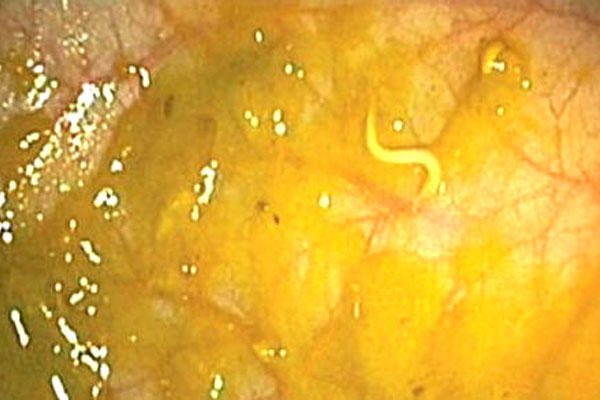Enterobiasis A disease caused by a small, up to 1 cm long, white worm – pinworm, or Enterobius vermicularis, which is common in all countries of the world and in people of all ages. Preschool and school-age children are more often affected. This parasitic disease is easily transmitted from one person to another. The worms living in the intestines of an infected person move to the anal area, lay eggs. This usually causes itching in this area. When rubbing, the eggs stick to the patient's fingers and get under the nails. When touching various objects, the eggs are transferred to other surfaces, such as toys, linens, consumer goods. Human infection can occur by putting hands directly into the mouth, through any object that is covered with eggs (toys, clothes, dishes, etc.), through dust containing eggs, in addition, in the summer, flies also participate in the transfer of eggs. The viability of eggs on the surface of objects reaches 1 month.
It is important to note that enterobiasis can lead not only to the patient spreading this parasitic disease to others, but also to self-infection.
During enterobiasis, the patient suffers from insomnia, irritability, itching in the back of the body, and may periodically experience abdominal pain and nausea. During the disease, sometimes girls may also experience genital infections.
Diagnosis is made in the laboratory – microscopic examination reveals eggs in the stool or perianal discharge. The adult parasite may be visible to the naked eye.
Anthelmintic drugs are used to treat enterobiasis, and a follow-up examination is necessary three weeks after treatment. It is noteworthy that the eggs of the worm that cause the parasitic disease can remain viable for a long time on the surfaces of various objects: such as toys, faucets, bed linen, dishes and other items, therefore, in addition to the usual wet cleaning of the dwelling, it is necessary to maintain personal hygiene to prevent the spread of eggs and reinfection, which includes: washing the body in the morning and evening, changing bed linen and underwear, washing laundry (nightgowns, underwear and towels) in hot water; systematically cutting nails, giving up the bad habit of biting nails, frequent hand washing, etc.


